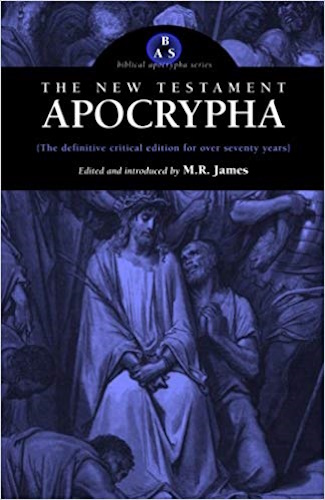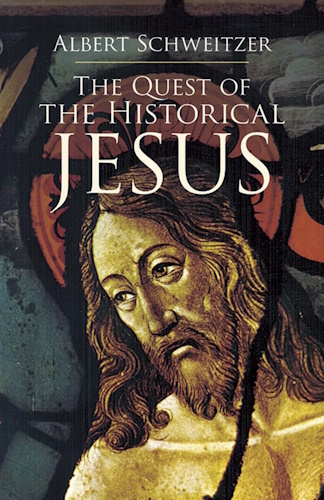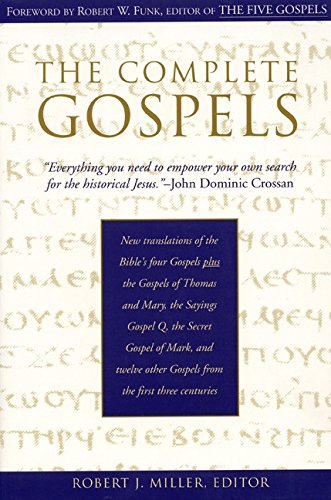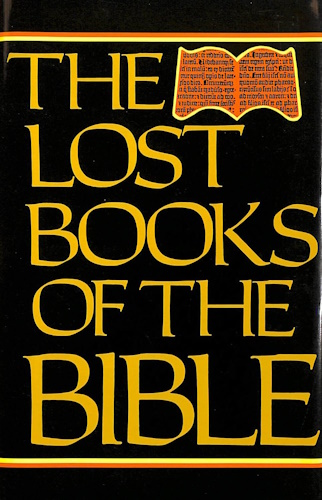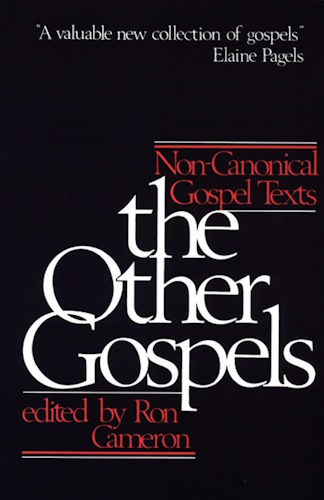
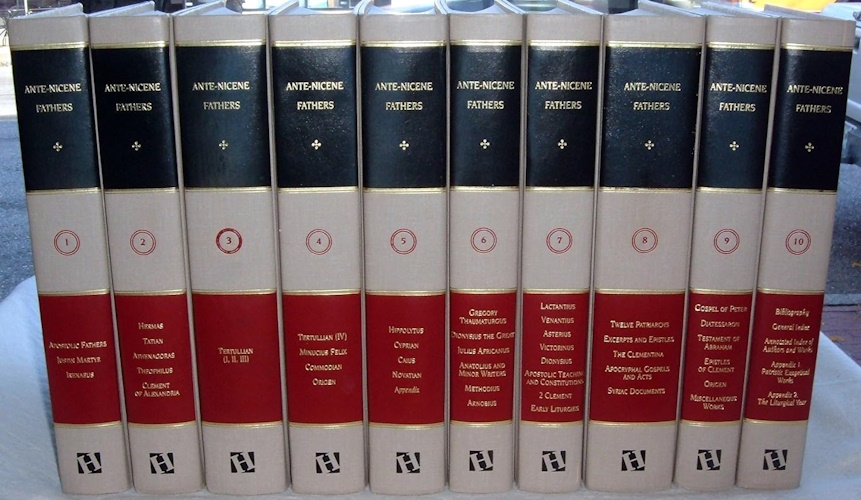
The Pastor of Hermas
Book Second-Commandments
Commandment Eleventh
From: Early Church Fathers 38 Volumes
Ante-Nicene Fathers: The Writings of the Fathers down to a.d. 325 Vol. II
edited by
Rev. Alexander Roberts, D.D., and James Donaldson, LL.D.
Translated by the Rev. F. Crombie, M.A.
The Pastor of Hermas
COMMANDMENT ELEVENTH.
The Spirit and Prophets to Be Tried by Their Works; Also of the Two Kinds of Spirit.
He pointed out to me some men sitting on a seat, and one man sitting on a chair. And he says to me, "Do you see the persons sitting on the seat?" "I do, sir," said I. "These," says he, "are the faithful, and he who sits on the chair is a false prophet, ruining the minds of the servants of God.219 It is the doubters, not the faithful, that he ruins. These doubters then go to him as to a soothsayer, and inquire of him what will happen to them; and he, the false prophet, not having the power of a Divine Spirit in him, answers them according to their inquiries, and according to their wicked desires, and fills their souls with expectations, according to their own wishes. For being himself empty, he gives empty answers to empty inquirers; for every answer is made to the emptiness of man. Some true words he does occasionally utter; for the devil fills him with his own spirit, in the hope that he may be able to overcome some of the righteous. As many, then, as are strong in the faith of the Lord, and are clothed with truth, have no connection with such spirits, but keep away from them; but as many as are of doubtful minds and frequently repent, betake themselves to soothsaying, even as the heathen, and bring greater sin upon themselves by their idolatry. For he who inquires of a false prophet in regard to any action is an idolater, and devoid of the truth, and foolish. For no spirit given by God requires to be asked; but such a spirit having the power of Divinity speaks all things of itself, for it proceeds from above from the power of the Divine Spirit. But the spirit which is asked and speaks according to the desires of men is earthly,220 light, and powerless, and it is altogether silent if it is not questioned." "How then, sir," say I, "will a man know which of them is the prophet, and which the false prophet?" "I will tell you," says he, "about both the prophets, and then you can try the true and the false prophet according to my directions. Try the man who has the Divine Spirit by his life. First, he who has the Divine Spirit proceeding from above is meek, and peaceable, and humble, and refrains from all iniquity and the vain desire of this world, and contents himself with fewer wants than those of other men, and when asked he makes no reply; nor does he speak privately, nor when man wishes the spirit to speak does the Holy Spirit speak, but it speaks only when God wishes it to speak. When, then, a man having the Divine Spirit comes into an assembly of righteous men who
page 28
have faith in the Divine Spirit, and this assembly of men offers up prayer to God, then the angel of the prophetic Spirit,221 who is destined for him, fills the man; and the man being filled with the Holy Spirit, speaks to the multitude as the Lord wishes. Thus, then, will the Spirit of Divinity become manifest. Whatever power therefore comes from the Spirit of Divinity belongs to the Lord. Hear, then," says he, "in regard to the spirit which is earthly, and empty, and powerless, and foolish. First, the man222 who seems to have the Spirit exalts himself, and wishes to have the first seat, and is bold, and impudent, and talkative, and lives in the midst of many luxuries and many other delusions, and takes rewards for his prophecy; and if he does not receive rewards, he does not prophesy. Can, then, the Divine Spirit take rewards and prophesy? It is not possible that the prophet of God should do this, but prophets of this character are possessed by an earthly spirit. Then it never approaches an assembly of righteous men, but shuns them. And it associates with doubters and the vain, and prophesies to them in a corner, and deceives them, speaking to them, according to their desires, mere empty words: for they are empty to whom it gives its answers. For the empty vessel, when placed along with the empty, is not crushed, but they correspond to each other. When, therefore, it comes into an assembly of righteous men who have a Spirit of Divinity, and they offer up prayer, that man is made empty, and the earthly spirit flees from him through fear, and that man is made dumb, and is entirely crushed, being unable to speak. For if you pack closely a storehouse with wine or oil, and put an empty jar in the midst of the vessels of wine or oil, you will find that jar empty as when you placed it, if you should wish to clear the storehouse. So also the empty prophets, when they come to the spirits of the righteous, are found [on leaving] to be such as they were when they came. This, then, is the mode of life of both prophets. Try by his deeds and his life the man who says that he is inspired. But as for you, trust the Spirit which comes from God, and has power; but the spirit which is earthly and empty trust not at all, for there is no power in it: it comes from the devil. Hear, then, the parable which I am to tell you. Take a stone, and throw it to the sky, and see if you can touch it. Or again, take a squirt of water and squirt into the sky, and see if you can penetrate the sky." "How, sir," say I, "can these things take place? for both of them are impossible." "As these things," says he, "are impossible, so also are the earthly spirits powerless and pithless. But look, on the other hand, at the power which comes from above. Hail is of the size of a very small grain, yet when it falls on a man's head how much annoyance it gives him! Or, again, take the drop which falls from a pitcher to the ground, and yet it hollows a stone.223 You see, then, that the smallest things coming from above have great power when they fall upon the earth.224 Thus also is the Divine Spirit, which comes from above, powerful. Trust, then, that Spirit, but have nothing to do with the other."
219 Is … God. He who sits in the chair is a terrestrial spirit.—Vat. And then follows the dislocation of sentences noticed above.
220 The spirit of all men is earthly, etc. This passage, down to "it is not possible that the prophet of God should do this," is found in the Vat. and other mss. of the common translation, with the exception of the Lambeth, in Command Twelfth. [Consult Wake upon omissions and transpositions in this and the former Commandment. And note, especially, his valuable caution against confounding what is here said, so confusedly, of the Spirit in man, and of the Spirit of God in his essence (1 Cor. ii. 11, 12).
221 Angel of the prophetic Spirit. The holy messenger (angel) of Divinity.—Vat. [1 Cor. xiv. passim.]
222 [Here is a caution against divers Phrygian prophesyings.]
223 [This proverb is found in many languages. Hermas may have been familiar with Ovid, or with the Greek of the poetaster Chœrilus, from whom Ovid, with other Latin poets, condescended to borrow it.]
224 Earth. After this the Vatican reads: Join yourself, therefore, to that which has power, and withdraw from that one which is empty. [Hermas seems to apply to the Spirit, in carrying out his figure, those words of the Psalmist, lxxii. 6.]
The Pastor of Hermas - Book Second.—Commandments.
Commandment Eleventh..
The Spirit and Prophets to Be Tried by Their Works; Also of the Two Kinds of Spirit.
![]()
![]()
-
Urantia Book, 44:0.11 - The Celestial Artisans
Never in your long ascendancy will you lose the power to recognize your associates of former existences. Always, as you ascend inward in the scale of life, will you retain the ability to recognize and fraternize with the fellow beings of your previous and lower levels of experience. Each new translation or resurrection will add one more group of spirit beings to your vision range without in the least depriving you of the ability to recognize your friends and fellows of former estates.
-
Princess Bride 1987 Wallace Shawn (Vizzini) and Mandy Patinkin (Inigo Montoya)
Vizzini: HE DIDN'T FALL? INCONCEIVABLE.
Inigo Montoya: You keep using that word. I do not think it means what you think it means. -
Urantia Book, 117:4.14 - The Finite God
And here is mystery: The more closely man approaches God through love, the greater the reality -- actuality -- of that man. The more man withdraws from God, the more nearly he approaches nonreality -- cessation of existence. When man consecrates his will to the doing of the Father's will, when man gives God all that he has, then does God make that man more than he is.
-
Urantia Book, 167:7.4 - The Talk About Angels
"And do you not remember that I said to you once before that, if you had your spiritual eyes anointed, you would then see the heavens opened and behold the angels of God ascending and descending? It is by the ministry of the angels that one world may be kept in touch with other worlds, for have I not repeatedly told you that I have other sheep not of this fold?"
-
Urantia Book, Foreword - 0:12.12 - The Trinities
But we know that there dwells within the human mind a fragment of God, and that there sojourns with the human soul the Spirit of Truth; and we further know that these spirit forces conspire to enable material man to grasp the reality of spiritual values and to comprehend the philosophy of universe meanings. But even more certainly we know that these spirits of the Divine Presence are able to assist man in the spiritual appropriation of all truth contributory to the enhancement of the ever-progressing reality of personal religious experience—God-consciousness.
-
Urantia Book, 1:4.3 - The Mystery Of God
When you are through down here, when your course has been run in temporary form on earth, when your trial trip in the flesh is finished, when the dust that composes the mortal tabernacle "returns to the earth whence it came"; then, it is revealed, the indwelling "Spirit shall return to God who gave it." There sojourns within each moral being of this planet a fragment of God, a part and parcel of divinity. It is not yet yours by right of possession, but it is designedly intended to be one with you if you survive the mortal existence.
-
Urantia Book, 1:4.1 - The Mystery Of God
And the greatest of all the unfathomable mysteries of God is the phenomenon of the divine indwelling of mortal minds. The manner in which the Universal Father sojourns with the creatures of time is the most profound of all universe mysteries; the divine presence in the mind of man is the mystery of mysteries.
-
Urantia Book, 1:4.6 - The Mystery Of God
To every spirit being and to every mortal creature in every sphere and on every world of the universe of universes, the Universal Father reveals all of his gracious and divine self that can be discerned or comprehended by such spirit beings and by such mortal creatures. God is no respecter of persons, either spiritual or material. The divine presence which any child of the universe enjoys at any given moment is limited only by the capacity of such a creature to receive and to discern the spirit actualities of the supermaterial world.
-
Urantia Book, 11:0.1 - The Eternal Isle Of Paradise
Paradise is the eternal center of the universe of universes and the abiding place of the Universal Father, the Eternal Son, the Infinite Spirit, and their divine co-ordinates and associates. This central Isle is the most gigantic organized body of cosmic reality in all the master universe. Paradise is a material sphere as well as a spiritual abode. All of the intelligent creation of the Universal Father is domiciled on material abodes; hence must the absolute controlling center also be material, literal. And again it should be reiterated that spirit things and spiritual beings are real.
-
Urantia Book, 50:6.4 - Planetary Culture
Culture presupposes quality of mind; culture cannot be enhanced unless mind is elevated. Superior intellect will seek a noble culture and find some way to attain such a goal. Inferior minds will spurn the highest culture even when presented to them ready-made.
-
Urantia Book, 54:1.6 - True And False Liberty
True liberty is the associate of genuine self-respect; false liberty is the consort of self-admiration. True liberty is the fruit of self-control; false liberty, the assumption of self-assertion. Self-control leads to altruistic service; self-admiration tends towards the exploitation of others for the selfish aggrandizement of such a mistaken individual as is willing to sacrifice righteous attainment for the sake of possessing unjust power over his fellow beings.
-
Urantia Book, 54:1.9 - True And False Liberty
How dare the self-willed creature encroach upon the rights of his fellows in the name of personal liberty when the Supreme Rulers of the universe stand back in merciful respect for these prerogatives of will and potentials of personality! No being, in the exercise of his supposed personal liberty, has a right to deprive any other being of those privileges of existence conferred by the Creators and duly respected by all their loyal associates, subordinates, and subjects.
-
Urantia Book, 54:1.8 - True And False Liberty
There is no error greater than that species of self-deception which leads intelligent beings to crave the exercise of power over other beings for the purpose of depriving these persons of their natural liberties. The golden rule of human fairness cries out against all such fraud, unfairness, selfishness, and unrighteousness.
